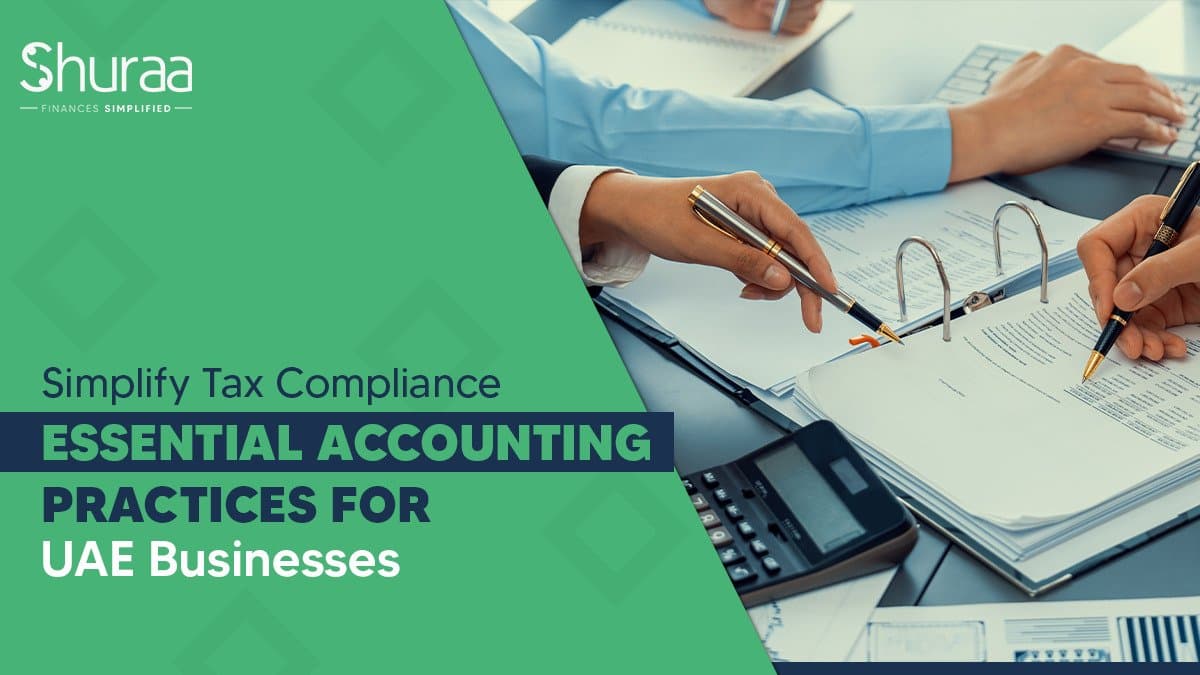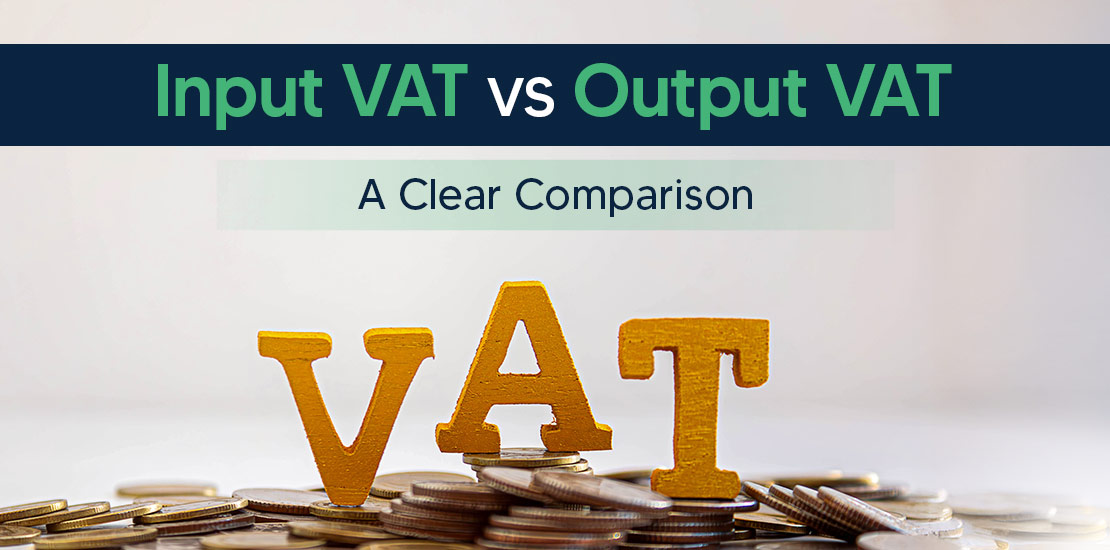Table of Contents
- What Exactly is Accounting Standards?
- Types of Accounting Standards
- UAE Regulatory bodies governing accounting standards
- Accounting Standards in the UAE
- Who Needs to Follow Accounting Standards in the UAE?
- Key Accounting Principles in the UAE
- Corporate Tax Law in the UAE
- Take the First Step with Shuraa Tax by Your Side
In today’s globalized business world, accounting standards play a crucial role in ensuring transparency, accuracy, and comparability in financial reporting. As the UAE continues to establish itself as a major player in the global economy, understanding and adhering to these accounting standards in UAE is of utmost importance for businesses operating in the country.
Also, the recent introduction of corporate tax in the UAE has further emphasized the importance of adhering to accounting standards. With the implementation of tax laws, businesses are now required to maintain accurate and up-to-date financial records in line with internationally recognized accounting principles.
Understanding these standards is essential not only for ensuring compliance with tax regulations but also for making informed business decisions and attracting potential investors. So, let’s get started.
What Exactly is Accounting Standards?
Imagine a world where every company recorded their finances differently, using their own unique methods and definitions. It would be a chaotic mess, with investors and creditors left scratching their heads, unable to compare or trust financial information.
This is where accounting standards step in, acting as the shared language of financial reporting.
Accounting standards are a set of established rules, principles, and procedures that dictate how financial transactions and events are recorded, measured, presented, and disclosed in financial statements. Think of them as the grammar and vocabulary of the accounting world, ensuring consistent and comparable reporting across businesses.
Types of Accounting Standards
- International Financial Reporting Standards (IFRS) – The most widely used global accounting standards
- International Financial Reporting Standards for Small and Medium-sized Entities (IFRS for SMEs)
- Generally Accepted Accounting Principles (GAAP)
- Cash Basis Accounting – A simpler method where revenue is recognized when received and expenses when paid.
- National Accounting Standards – Some countries have their own national accounting standards that may coexist with international standards.
UAE Regulatory bodies governing accounting standards
1. Emirates Securities and Commodities Authority (ESCA)
ESCA is the primary regulatory body for the financial markets in the UAE, including listed companies and their financial reporting practices. ESCA issues Accounting Standards and pronouncements in line with international best practices and IFRS.
2. International Financial Reporting Standards (IFRS)
The UAE has adopted IFRS as its national accounting standards, with some minor modifications for local specificities. This signifies the UAE’s commitment to global financial transparency and comparability.
Accounting Standards in the UAE
The core accounting standards in UAE are largely based on International Financial Reporting Standards (IFRS), with some minor modifications for local specificities. These standards are issued by the Emirates Securities and Commodities Authority (ESCA), the primary regulatory body for the financial markets in the country.
A. International Financial Reporting Standards in UAE
In the UAE, the introduction of corporate tax has made IFRS (International Financial Reporting Standards) the mandatory language of financial reporting for most businesses.
Mandatory for the Majority:
- All businesses exceeding AED 50 million in annual revenue must comply with full IFRS.
- This ensures transparency and comparability of financial statements for investors, creditors, and tax authorities.
Key Concepts:
- IFRS focuses on providing relevant and reliable information for decision-making, emphasizing accrual accounting, fair value measurement, and the going concern principle.
- This means transactions are recorded when they occur, not just when cash is exchanged, and assets and liabilities are valued at their current market prices.
B. IFRS for SMEs in the UAE
It’s a condensed version of the full International Financial Reporting Standards (IFRS), tailored specifically for the needs of smaller businesses. If your business in the UAE has annual revenue below AED 50 million, you automatically qualify to use IFRS for SMEs for your financial reporting.
It provides reduced disclosure requirements and less complex accounting rules compared to full IFRS. This makes compliance easier and less time-consuming.
C. Cash Basis Accounting for Specific Cases
In limited circumstances, businesses with revenue under AED 3 million or under specific exemptions may be allowed to use cash basis accounting. This method records transactions only when cash is received or paid out, but it may not accurately reflect the true financial position of the business.
D. Local GAAP for Exempt Entities
Some entities exempt from corporate tax may be allowed to use local Generally Accepted Accounting Principles (GAAP). However, this is rare, and most businesses will still need to comply with IFRS or IFRS for SMEs for tax purposes.
E. Role of the UAE Ministry of Finance and Federal Tax Authority
While the International Accounting Standards Board (IASB) sets IFRS, the UAE Ministry of Finance and the Federal Tax Authority play a role in interpreting and applying these standards within the UAE context. They may issue guidance or clarifications on specific issues relevant to the UAE market or tax regulations.
Who Needs to Follow Accounting Standards in the UAE?
With the introduction of corporate tax in the UAE, understanding who needs to follow accounting standards has become crucial for businesses. Under the UAE Corporate Tax Law, a “Taxable Person” is any entity that carries on a “Taxable Activity” within the UAE. This includes, but is not limited to:
- Companies incorporated in the UAE
- Branches of foreign companies
- Individuals carrying on a business
- Joint ventures, partnerships, and trusts
Even if you are exempt from using IFRS or IFRS for SMEs, you still need to maintain accurate financial records and comply with other relevant accounting and tax regulations.
Seeking professional advice from qualified accountants or tax advisors is highly recommended to ensure proper compliance of accounting standards in Dubai or UAE and optimize your tax reporting.
Key Accounting Principles in the UAE
While the UAE doesn’t have its own set of “Key Accounting Principles” like some countries, several important principles underly the application of International Financial Reporting Standards (IFRS) and other accounting frameworks within the UAE context.
1. Accrual Basis Accounting
Records transactions when they occur, not just when cash is exchanged, providing a more accurate picture of the company’s financial health.
2. Going Concern Principle
Assumes the entity will continue operating in the foreseeable future, affecting various valuation and recognition aspects.
3. Fair Value Measurement
Assets and liabilities are valued at their current market price as opposed to historical cost, enhancing transparency and reliability.
4. Matching Principle
Expenses are recognized in the same period as the revenue they are incurred to generate, ensuring accurate income presentation.
5. Prudence Principle
Requires cautiousness in reporting, recognizing expenses and potential losses promptly but holding off on recognizing potential gains until they are realized.
Corporate Tax Law in the UAE
Corporate Tax is levied on the Taxable Income, which is broadly defined as the net profit before tax calculated in accordance with IFRS or IFRS for SMEs. Certain adjustments may be required to align with the tax provisions.
The standard corporate tax rate is 9% for taxable income exceeding AED 375,000. Income below this threshold is exempt from tax. Businesses operating within designated free zones may have different tax treatments depending on their specific agreements and activities.
In general, no withholding tax is applied to dividends or other distributions paid out of Taxable Income. Taxable Persons are required to file tax returns annually with the Federal Tax Authority. Penalties may be imposed for non-compliance with the law and associated regulations.
Take the First Step with Shuraa Tax by Your Side
Understanding and complying with accounting standards in the UAE is crucial for businesses and individuals alike. By adhering to these standards, companies can ensure accurate and transparent financial reporting, which in turn builds trust with stakeholders and investors.
It also helps businesses stay compliant with legal requirements and avoid penalties or legal issues. Seeking professional advice from tax advisors, such as Shuraa Tax, can further enhance this process.
Our experts have in-depth knowledge of the local accounting standards in Dubai and can guide businesses through the process, ensuring compliance while maximizing financial efficiency.
Shuraa Tax offers comprehensive accounting services tailored to the unique needs of businesses in the UAE. Our suite of services encompasses precise accounting practices, ensuring compliance with standards while optimizing financial efficiency.
Get in touch today at +971508912062. You can also drop us an email at info@shuraatax.com and get your queries answered in no time. Let’s minimize tax risks and optimize your tax positions.













